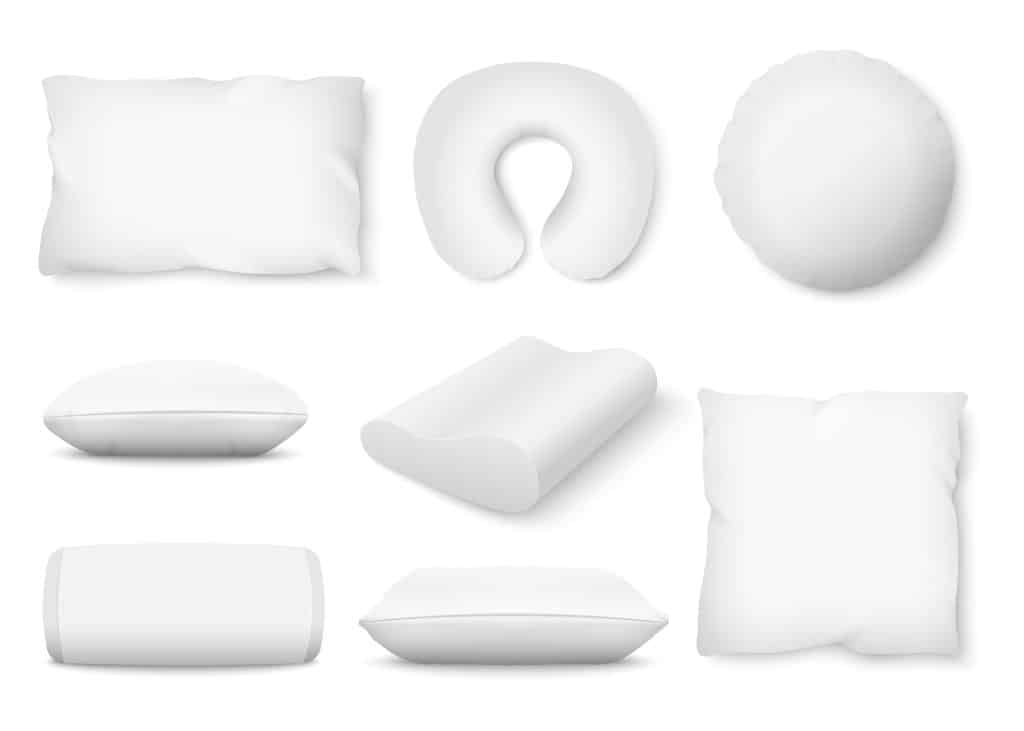Pillow Advice
How to Choose a Pillow
Choosing a pillow should be easy, right? All you need to do is to find the softest and fluffiest pillow in your preferred size and you’re all set for a good night’s rest. We all wish it could be this easy, but different types of pillows serve different purposes. For this reason, it is important to find a pillow that best suits your needs.
Besides helping you sleep more comfortably, a pillow should be able to support your head, neck and shoulder properly, promote a healthy spine and relieve pressure from your whole body. A good pillow can also help prevent health issues such as allergies, respiratory disease and chronic pain. If you’re in the market for a new pillow, keep these tips in mind when shopping for one.
Filling
The secret to a good pillow is primarily in the filling. This is the first factor you should consider when choosing the right pillow you need. Different fillings provide different levels of support and comfort and the right pillow can transform your sleep experience. The right pillow can also provide many health benefits. Hypoallergenic pillows, for example, are ideal for those with allergies because the pillow has been treated to repel common allergens. Wool and latex pillows are also good choices due to their natural anti-allergy properties. If you don’t have any allergy problems, polyester, down and feather pillows are good options.
Cost
Polyester pillows take the top spot when it comes to affordability. They are soft, lightweight and cuddly; they also compress well to give the right amount of support to your head, neck and spine. Polyester pillows are among the easiest to maintain. They are widely available, so you won’t have a problem looking for them when you need to replace your pillows. Buckwheat and feather pillows are also budget-friendly and will give you the best value for your money.
If you want something more luxurious, you can try down pillows, wool pillows or latex pillows. They’re a bit on the expensive side but are very hardy and durable. The price you pay is also worth the quality and comfort they deliver. If you take care of your wool or down pillows properly, they can last up to 40 years.
Sleeping Position
We all have a favourite sleeping position and pillows can get in the way of comfort sometimes. Back sleepers will do well with polyester pillows and memory foam pillows because these can provide adequate neck and upper spine support. Side sleepers, on the other hand, are better off with contour pillows since they provide better support to the neck and shoulders when sleeping in this position. People with lower back injuries should also consider using roll pillows or bolsters for lumbar support and posture correction.
Firmness
The ideal firmness of a pillow depends on your sleep position and personal preference. Back and side sleepers need firmer pillows while those who sleep on their stomachs will do better with a softer pillow. If you want a soft and luxurious pillow, down pillows are the best since they’re supple and fluffy. If you prefer something harder, cotton pillows and memory foam pillows are your best choices. Polyester or wool pillows, on the other hand, are recommended if you’re looking for medium firmness.
Now that you know what type of pillow is best for your needs, a good night’s rest shouldn’t be too far off. Aside from providing comfort and rest, the right pillow can give you the correct support you need while preventing issues like neck, shoulder and back pain.

